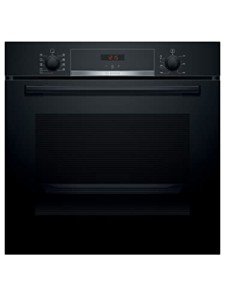Integrated Cooker And Hob's History Of Integrated Cooker And Hob In 10 Milestones
The Rise of Integrated Cookers and Hobs: A Comprehensive Guide
In the modern-day kitchen, effectiveness, design, and space optimization are key factors to consider for property owners and aiming chefs alike. One of the most substantial patterns in kitchen design is the increasing popularity of integrated cookers and hobs. These appliances not just boost the cooking experience but also raise the aesthetics of the kitchen area. simply click the following website page out the characteristics, benefits, functions, and factors to consider surrounding integrated cookers and hobs, providing readers with a detailed understanding of their advantages.
What Are Integrated Cookers and Hobs?
Integrated cookers and hobs refer to cooking appliances that are built into the kitchen cabinets, supplying a smooth look and making the most of the usage of space. Integrated Electric built in oven and hob packages are created to blend with the visual of the kitchen instead of sticking out like conventional models.
Types of Integrated Cookers and Hobs
Generally, integrated cooking appliances include:
- Integrated Hobs: These are cooktops that fit flush into the kitchen countertop. They can be gas, electric, induction, or a combination of these innovations.
- Integrated Ovens: Built directly into the kitchen cabinetry, integrated ovens can come as single, double, or multifunctional designs, using diverse cooking abilities.
- Mix Units: Some designs combine an oven and hob into a single appliance, providing a compact option for smaller cooking areas.
Advantages of Integrated Cookers and Hobs
1. Area Optimization
Integrated cookers and hobs are perfect for small kitchen locations. By embedding the cooking appliances into cabinets, property owners can use their kitchen space more efficiently, leaving more room for meal preparation and motion.
2. Aesthetic Appeal
These appliances provide a streamlined and contemporary aim to the kitchen. The ability to pick surfaces and incorporate them into the surrounding kitchen cabinetry develops a unified design that boosts the general look of the kitchen.
3. Improved Functionality
Integrated cookers and hobs often include sophisticated technology functions, such as clever controls, timers, and cooking presets, enhancing user experience and enabling efficient cooking.
4. Improved Safety
Lots of integrated hobs include safety procedures such as kid locks and automated shut-off features. This makes them more secure than conventional freestanding models, especially in homes with children.
5. Increased Resale Value
Modern homes with integrated appliances typically draw in higher resale values. Potential buyers search for smooth designs and modern conveniences, making integrated cooks and hobs a smart investment.
Functions to Consider When Choosing Integrated Cookers and Hobs
When choosing integrated cookers and hobs, several features need to be considered:
1. Cooking Technology
- Induction: Provides quick and efficient cooking, easy to clean, and provides precise temperature control.
- Gas: Offers traditional cooking benefits with instantaneous heat however needs sufficient ventilation.
- Electric: Provides constant heat and is available in numerous styles.
2. Size and Configuration
- Oven Capacity: Should be sufficient for the home's cooking requirements.
- Hob Size: Depending on the variety of burners/vessels needed for simultaneous cooking.
3. Control Mechanisms
- Touch Controls: Provide a sleek look and ease of cleaning.
- Knob Controls: Offer tactile feedback and are easy to use.
4. End up and Style
Integrated cookers and hobs can be found in various surfaces, consisting of stainless steel, black glass, and even adjustable choices to match cabinets.
5. Energy Efficiency
Select energy-efficient designs that can save on utility costs and lower environmental impact.
Upkeep and Care
To maintain the performance and longevity of integrated cookers and hobs, routine upkeep is key:
- Clean the surface areas: Regularly clean down the hob and oven surface areas to prevent residue accumulation.
- Examine seals and gaskets: Ensure that oven seals are undamaged for efficient cooking.
- Service regularly: Schedule expert upkeep to keep the appliances in top shape.
Frequently asked questions
1. What is the distinction between built-in and integrated cookers?
Answer: Built-in cookers are developed to be installed within kitchen cabinets, whereas integrated cookers are developed to perfectly mix with the cabinetry for a more cohesive appearance.
2. Are integrated appliances more pricey?
Response: Generally, integrated appliances might have a higher upfront expense compared to freestanding systems due to the fact that of their style and the setup requirements. However, they can offer long-term cost savings in energy effectiveness.
3. Can I install integrated cookers and hobs myself?
Response: While some house owners might be able to handle the setup themselves, working with a professional is advised to guarantee correct fit and function, specifically for gas appliances.
4. Are integrated cookers and hobs easier to clean?
Answer: Integrated hobs generally have fewer crevices, making them easier to clean. However, the particular cleaning requirements will depend on the materials utilized in the appliance.
5. What should I check before acquiring?
Answer: Check the size of your kitchen area, cooking needs, energy effectiveness rankings, and compatibility with existing cabinets.
Integrated cookers and hobs are becoming progressively preferred in contemporary kitchens, combining performance with aesthetic appeal. By understanding their advantages, features, and upkeep requirements, property owners can make informed choices when choosing the ideal appliances for their cooking areas. As trends in kitchen style continue to progress, integrated cooking solutions will likely remain at the forefront of home innovation, assuring both functionality and style.
